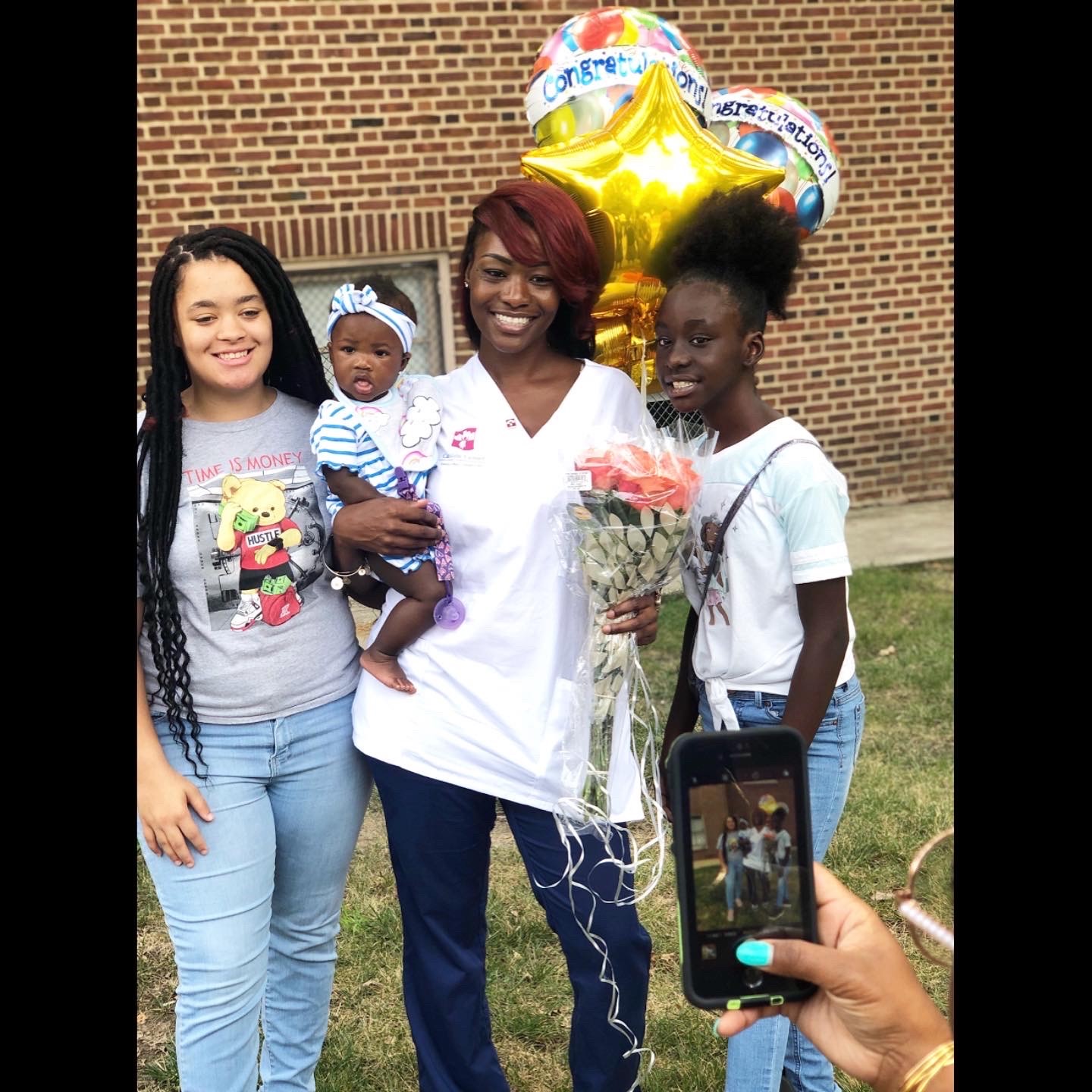Before he enrolled at the Christopher Place Employment Academy, Charles Cole battled alcohol use disorder and was on probation for driving under the influence. Now, Cole is gainfully employed as a floor technician at Johns Hopkins Bayview Medical Center.
Christopher Place, a program funded by Catholic Charities of Baltimore, is a residential facility for men who want to make positive life changes. Many are homeless. Many also have substance use disorder, or are returning to the workforce after being in prison. While at Christopher Place, they learn critical job readiness, and interpersonal and independent living skills.
“I needed a place to sit and think through my issues,” says Cole. “As a man, you really want to have your own and be able to support yourself. You can stay at Christopher Place until you get yourself together. They start you over from scratch. You learn to focus on the little things so you can take really big steps to become self-sufficient.”
The program, which works with organizations like Johns Hopkins Medicine, has three phases. In the first phase, men who want a second chance settle into the program and spend 30 days without cellphones or media and another 30 days without off-grounds visits. A variety of classes in the second phase prepares them for the working world. The classes cover topics such as basic workplace etiquette, time management, critical thinking, healthy cooking, financial literacy and computer training. The participants also do mock interviews and spruce up their resumes. In the third phase, known as the working man phase, the participants are tasked with finding a job within 30 days. They work closely with a job placement specialist to obtain employment that pays at least $12 per hour. They are asked to save 20% of their paychecks so they can prepare to strike out on their own.
Nicole Williams, Christopher Place program director, says the program includes case management services, addictions counseling and support from a behavioral health team. During the second phase, job placement specialist Chanelle Elliot-Stevenson builds relationships with the men.
“I meet with them several times a week and get to know what their hurdles are,” Elliot-Stevenson says. “I match up the information they give me with different opportunities that we have. Places like Johns Hopkins Medicine are background friendly, so we work together often.”
If they’re successful in the second phase, the participants attend a three-day retreat to relax and take in everything they’ve done over the previous six months.
“They get their hearts and minds ready for the working man phase,” says Williams. “We have a capstone ceremony to recognize their accomplishments, and then they go out to look for jobs. This is their opportunity to get back into society and be successful.”
Mone't Horton, a career coach in the Department of Human Resources’ Office of Strategic Workforce Planning and Development at Johns Hopkins Medicine, says working with community-based organizations like Christopher Place is a joy and an honor. Many Christopher Place graduates enroll in Johns Hopkins’ Transitional Employment Partnership Program for on-the-job training.
“It’s an opportunity for candidates to come in and work in positions they could be hired into,” says Horton. “It’s a great opportunity for candidates with a background, and those who are reentering the workforce or have minimal to no work experience. We lean on Christopher Place to make sure they are vetting the candidate. They are great partners and they make sure that applicants understand the expectations of Johns Hopkins. The majority of Christopher Place candidates show up prepared and ready for the job.”
An example, Horton says, is Christopher Place graduate Hadi Sadeghiasl, who also participated in the Transitional Employment Partnership Program.
“Hadi hit the ground running,” says Horton. “He came in with an open mind and showed us his work ethic. He was able to secure full-time employment with us and he’s doing phenomenal things for Hopkins.”
Sadeghiasl, who is employed at The Johns Hopkins Hospital as a floor technician, says Christopher Place helped him turn his life around.
“I didn’t have a plan for life and I was always asking friends and family to borrow money,” he says. “When I found out what kind of help Christopher Place has, I knew it was what I had been looking for my whole life. They showed me how to live without drugs and alcohol and be happy.”
Christopher Place also taught Sadeghiasl how to save money and how to pay bills on time. The employment academy helped him get a green card too, and thanks to Christopher Place, Sadeghiasl was able to participate in the Johns Hopkins Live Near Your Work program and buy his first home.
“I’m happy, I’m healthy, I have a job, I have good savings,” he says. “I just became a homeowner and I own all the things in my house. I’m no longer broke.”
Yariela Kerr-Donovan, Johns Hopkins senior director of the Office of Strategic Workforce Planning and Development, says she feels blessed to work at an organization that plays a part in success stories like Cole’s and Sadeghiasl’s.
“Hopkins has a commitment to our communities. You look around at who is in your community and find ways to reach them,” she says. “Returning citizens are a reality of the members of our community. There’s a lot of talent in this community, and we want to engage talented people. We recognize folks might have made some mistakes, but we also recognize that people grow and evolve.”
“We might open the door, but they’re doing the work and they’re demonstrating the skills,” Kerr-Donovan adds. “These individuals are fighting against the odds to survive and thrive. Any way we can play a part in helping that along is exactly what Hopkins should be doing.”



